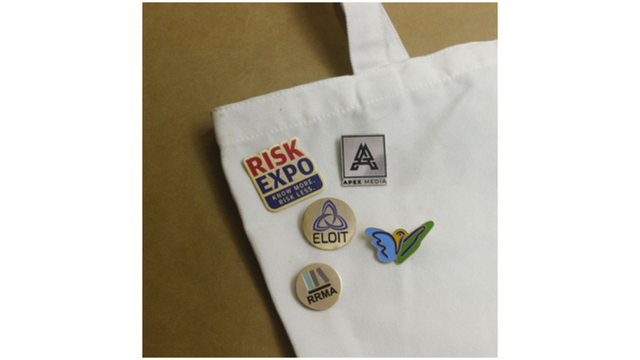
Kosher Certificate in India
In today’s global market Kosher Certificate in India , food safety and quality assurance are more important than ever. Whether you’re in the food, pharmaceutical, or nutraceutical industry, aligning your products with international standards is no longer optional—it’s essential. One such globally recognised certification is Kosher Certification. Though based on Jewish dietary laws, kosher certification is now seen as a symbol of purity, hygiene, and high standards across industries.
If you’re a manufacturer or exporter in India, understanding what a Kosher Certificate is, what “kosher” really means, and how the process works can help unlock new markets and build consumer trust worldwide.
What Does Kosher Certificate in India Mean?
The term Kosher comes from the Hebrew word Kashér, which means “fit” or “proper.” In the Jewish faith, kosher laws define which foods are allowed and how they must be prepared and consumed.
Here are some core kosher principles:
-
Only certain animals are permitted, such as cows, goats, and sheep. These animals must be slaughtered according to specific guidelines.
-
Birds like chicken and turkey are kosher, while others are not.
-
Fish must have fins and scales—so shellfish, crabs, and prawns are not kosher.
-
Meat and dairy products must never be mixed, cooked, or eaten together.
-
Equipment, utensils, and even storage areas must be kept separate for different food types.
Kosher laws are detailed and religious in nature, but over time, the term has also come to represent strict food handling, cleanliness, and attention to detail.
What is a Kosher Certificate?
A Kosher Certificate is an official document issued by a kosher certification agency that confirms your product or manufacturing process complies with kosher dietary laws. It means the ingredients, preparation, and facility setup meet strict religious and quality standards.
Certified products can display a kosher symbol—such as OU, OK, or Star-K—which is recognised by consumers and retailers worldwide. For many global buyers, particularly in the US, Canada, and the Middle East, a kosher label is not just preferred—it’s required.
Even among non-Jewish customers, kosher products are viewed as healthier, cleaner, and safer due to the rigorous standards involved.
Why Indian Manufacturers are Seeking Kosher Certification
India is a major player in the global export market, especially in areas like spices, ready-to-eat meals, processed foods, herbal extracts, and pharmaceuticals. To grow globally, Indian companies are increasingly obtaining kosher certification to align with international standards.
Here’s why kosher certification matters:
1. Access to New Markets
Many international buyers—especially in Jewish-majority or kosher-sensitive countries—require kosher-certified goods. Certification makes it easier to enter and compete in these regions.
2. Enhanced Brand Image
Displaying a kosher symbol can boost your brand’s credibility, showing customers that you value cleanliness, transparency, and strict quality controls.
3. Broader Consumer Appeal
Kosher certification attracts not just Jewish consumers, but also vegetarians, vegans, and those with dietary restrictions who rely on kosher symbols for clarity and trust.
4. Improved Compliance
Kosher certification often aligns with other global standards like HACCP and ISO, making it easier to meet various regulatory and import requirements.
The Process of Getting Kosher Certified in India
If you’re planning to apply for a Kosher Meaning , here’s a breakdown of the typical process:
Step 1: Choose a Certification Agency
There are several international kosher certifying bodies with a presence in India. Some of the most recognised include:
-
Orthodox Union (OU)
-
OK Kosher
-
Star-K
-
Kof-K
Choose a certifier that aligns with your target export market and product type.
Step 2: Submit Your Application
Provide detailed information about your facility, product range, raw materials, suppliers, and production methods. This helps the certifier understand how your process aligns with kosher laws.
Step 3: On-Site Inspection
A kosher auditor (called a Mashgiach) will visit your facility. They’ll inspect production lines, ingredients, machinery, storage, and sanitation practices.
Step 4: Adjustments (If Needed)
If your setup doesn’t fully comply, the certifier will recommend changes—such as using kosher-certified ingredients, dedicating separate equipment, or improving your cleaning protocol.
Step 5: Certification
Once everything meets the required standards, you’ll receive a kosher certificate along with the rights to use the kosher symbol on packaging and promotional materials.
Step 6: Regular Audits
Most kosher certifications are valid for one year, with periodic inspections to ensure continued compliance.
Cost of Kosher Certification in India
The cost of getting Kosher Certificate in India varies based on:
-
The number of products
-
The complexity of your operations
-
The size and location of your facility
-
The certification agency you choose
On average, Indian businesses can expect to pay between $500 and $2,000 annually. Though it may seem like a significant expense, the potential for global trade and increased consumer confidence makes it a valuable investment.
Also Read – Kosher Meaning: A Guide to What Makes Food Truly Kosher
Final Thoughts
Getting a Kosher Certificate in India is no longer just about meeting religious standards—it’s about expanding your business, improving product reputation, and appealing to a wider, more quality-conscious market.
Whether you’re a spice exporter, a packaged food manufacturer, or a pharmaceutical brand, kosher certification can help you stand out in a competitive global landscape. It signals that your product is trustworthy, safe, and made with care.
With international demand rising and buyers expecting higher food standards, now is the right time for Indian businesses to embrace kosher certification and grow beyond borders.




